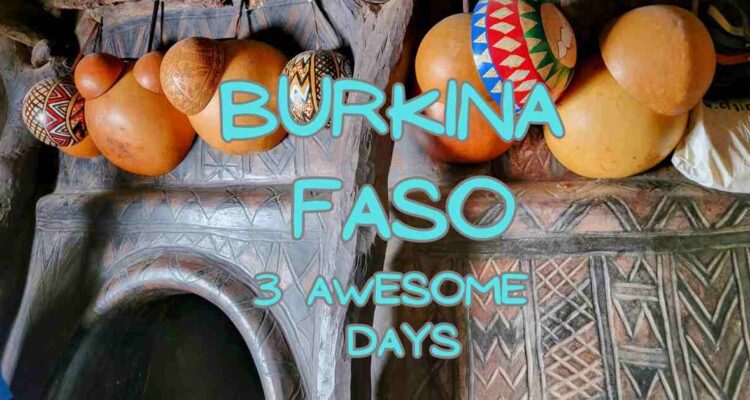Burkina Faso travel is an adventure into an off the beaten path destination. It is a country of many contrasts, incredibly welcoming people, stunning architecture and deep culture.
Burkina Faso travel for us was a real adventure. It was also a chance for us to step outside of our comfort zone, challenge our preconceptions, and discover a world that is far richer and more complex than we ever imagined.
In this post we share our Burkina Faso itinerary, all the logistics to thoroughly enjoy this country safely and the many many things to do in Burkina Faso. We hope that this Burkina Faso travel guide helps you in your travels and adventures in this amazing country.
Logistics – Burkina Faso Travel Guide
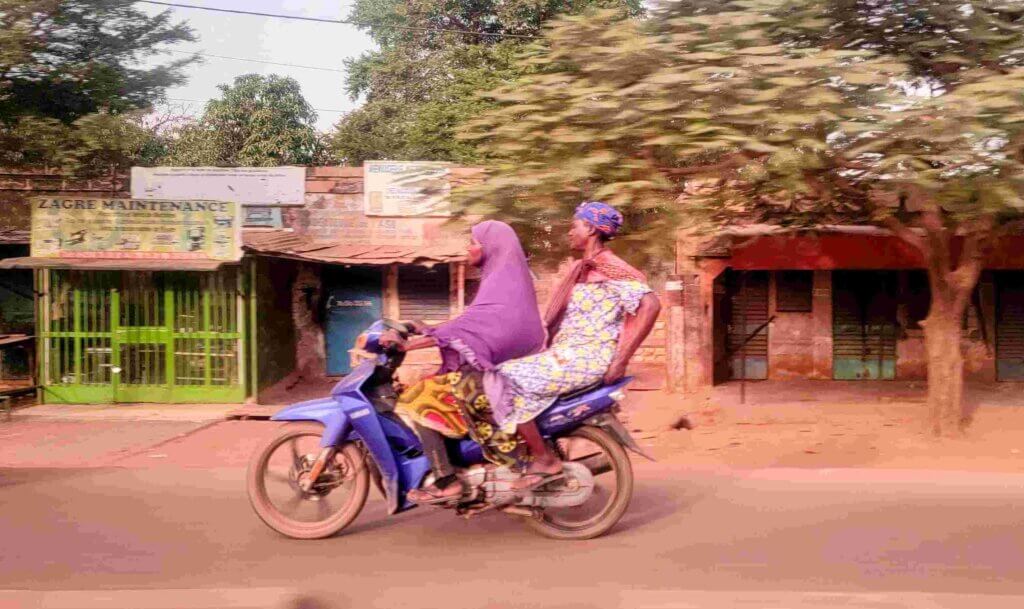
There are many things to consider before embarking on an off the beaten path place like, Burkina. In this Burkina Faso travel guide we share all the tidbits that helped us get to the destinations that we wanted to go to while staying as safe as we could. And we got to see so many of the interesting Burkina Faso attractions!
Safety – Burkina Faso Travel
As I write this, I reflect on the warmth of this gorgeous country. There was never a moment where we did not feel safe. The people of Burkina where incredibly welcoming, generous and helpful. However, prior to embarking on this type of adventure, it is crucial to be aware of the potential risks.
When we visited and at the time of writing, all travel advisories (Canada, USA, Australia, etc.,) where at the highest level – Do Not Travel. This is due to the potential risk of terrorism and kidnapping in this country. We were aware of this and made a conscious decision based on the information that we had from our guide, trusted news channels and our tolerance for risk.
I mean hey, we have visited a lot of risky places, including Afghanistan. All of these quests were based on deep research, conversations with people on the ground balanced with our sense for adventure.
Ultimately, the decision to travel to Burkina (or any other potentially risky travel destination) rests with you and your personal tolerance for risk.
Currency
Burkina Faso uses the West African CFA Franc. This currency is shared by eight West-African nations: Benin, Burkina Faso, Ivory Coast, Guinea-Bissau, Mali, Niger, Senegal, and Togo. The CFA is quite stable as it is now pegged to the Euro.
At time of writing, the 1000 CFA was worth $1.68 USD.
Tourist Visa for Burkina Faso Travel
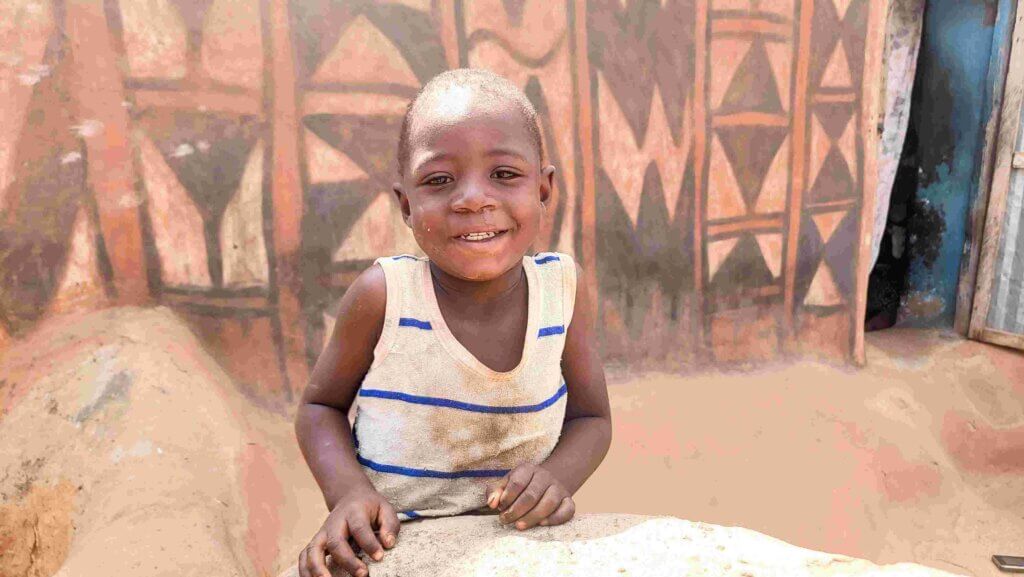
A tourist visa is required for most visitors, especially those from the west. There are a couple of options to receive the visa:
- You can apply for the Burkina tourist visa at a Burkina Embassy in your home country. This option usually takes an extended period of time and can be a costly option.
- You can also get a visa while visiting one of the other capitals of West Africa, which may prove cheaper. For example, there is a Burkina Embassy in Dakar, Senegal. The cost of getting a tourist visa there, was only 25,000 CFA (approximately $42 USD).
- Or you can do what we did: Get a visa on arrival at the Ouagadougou airport. As this is the least difficult option, it is the most expensive one. The cost to us was 110,000 CFA per person (approximately $185 USD).
PRO TIP: If your travels are 5 days or less, you can try to get the transit visa upon arrival. Some of our friends were successful at doing this during previous trips. The cost is only 25,000 CFA. However, on our trip we were unsuccessful in convincing the immigration officials that we were deserving of that particular visa.
Connectivity: SIM Cards
Surprisingly our wifi connectivity in our Ouagadougou hotel was quite good. But for a tangible SIM card, we would recommend getting an Orange SIM. It has adequate coverage throughout most of the country. You can either buy the card at the airport upon arrival, at one of the Agence Orange brick and mortar shops, or with one of the many small kiosks throughout town.
Make sure to have your passport with you to register and activate the card upon purchase.
Burkina Faso Travel Guide/Driver
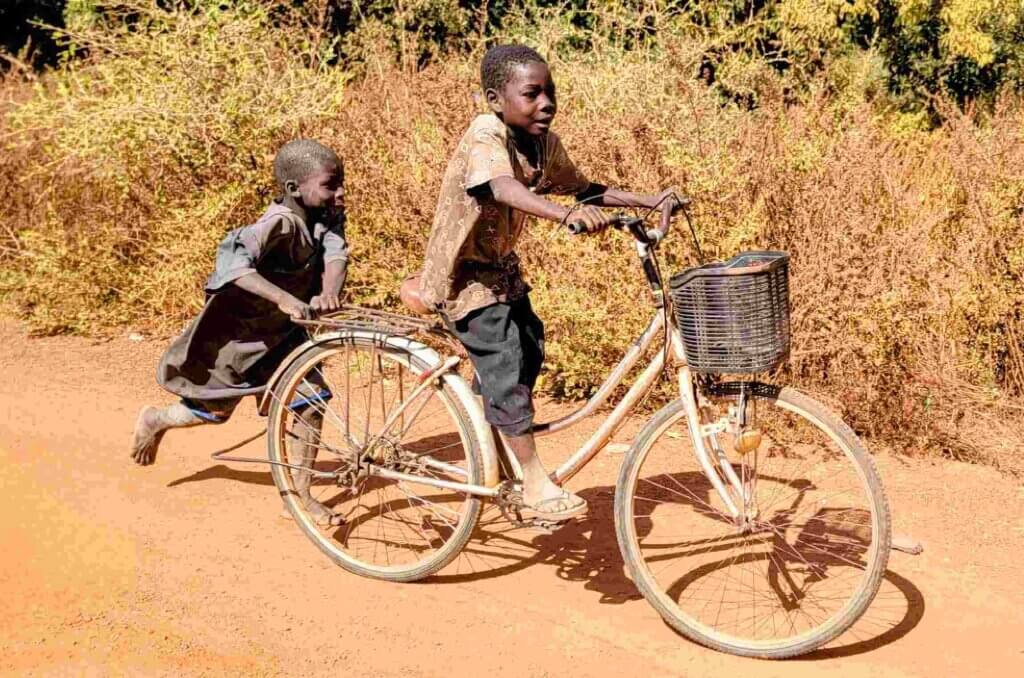
There are a number of guides and organizations that successfully operate in this country. However, given the added risk here, we wanted to go with someone who really knows the area and has connections to the government and the precarious day to day changes and safety measures required to be aware of here.
The organization that we used is called Papillon Reizen, whose owner and director,Abdoulaye Litni, organized our tour. Abdoulaye can be reached on What’s App at: +223 79 32 18 51 or through email: [email protected]
Top Things to Do in Burkina Faso
Tiebele
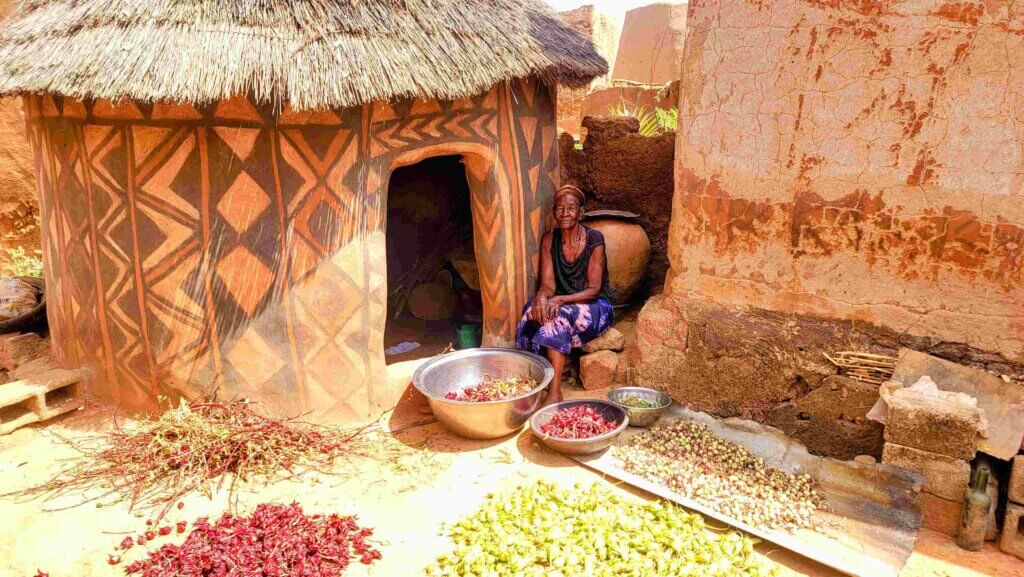
Tiebele is an extraordinary ancient village made up of gorgeous mud homes and is definitely recommended for any Burkina Faso itinerary . This is a UNESCO World Heritage Site which is a living canvas, where ochre walls explode with vibrant geometric patterns and intricate symbols, telling stories whispered through generations. It is located about 4 hours south of the capital, next to the border with Ghana.
Visiting here is like stepping into a living mural. Imagine strolling down a sun-drenched lane, flanked by houses (well, they are mostly huts) that aren’t just mud and straw, but vibrant masterpieces. Geometric grids are splayed across sand colored walls, punctuated by bold triangles, stars, and stylized animals. Each symbol tells a tale: fertility diamonds, protective spirals, ancestral markings etched by the hands of mothers and daughters for centuries.
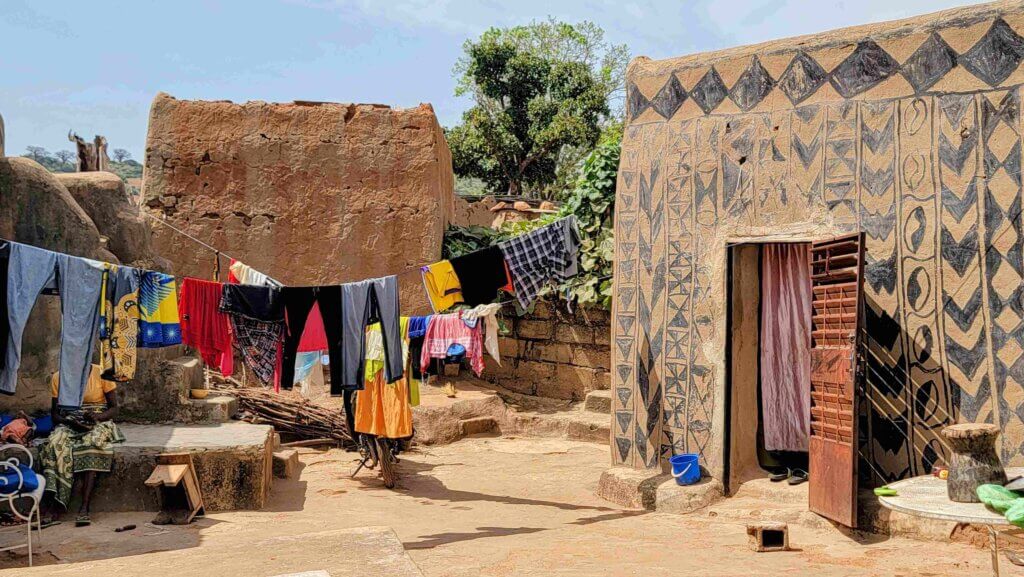
Tiebele’s magic goes beyond the mesmerizing facade. Part of the tour was being able to step inside one of these family home structures. Outside the temperatures were close to 40 C and we were incredibly hot. However, surprisingly the earthen walls of these homes while inside breathe in cool air. It is a testament to the sustainable nature of this architectural wonder.
In addition, these homes are designed to filter in light through intricate clay lattices which cast mesmerizing patterns on the floor. Here, life unfolds in harmonious rhythm with the earth, each generation adding their brushstrokes to the village’s ever-evolving story.
Making a Tiebele Mud Home
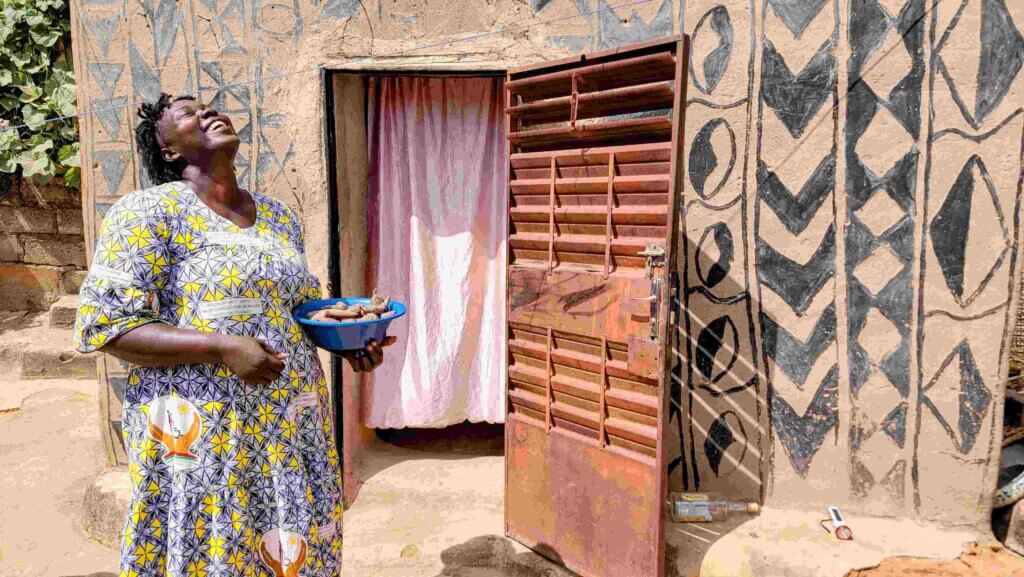
One of the things to do in Burkina Faso, while visiting Tiebele, was to to see a house being painted in this ancient way. The cost was an additional $250 USD. Here is the process that is used, so that you can decide if you want to spend the additional amount:
1. Mixing Earth’s Palette: Local women are the artists, mixing natural pigments from earth and rocks. Ochre, sienna, and charcoal become paint, their hands stained with the village’s vibrant colors.
2. Preparing the Canvas: Walls are smoothed and coated with mud, creating a blank canvas for artistic expression. Geometric patterns are etched using a string and wooden stick, forming the framework for the designs.
3. Storytelling with Strokes: Each brushstroke tells a story. Diamonds represent fertility, spirals ward off evil, and animal figures connect villagers to their ancestors. Colors have meanings too, with red symbolizing courage, black representing night and the invisible world, while white signifies honesty and purity.
4. Burnishing for Beauty: Once painted, the designs are burnished with smooth stones, polishing them and protecting them from the elements. This final touch ensures the stories whispered in mud endure for years to come.
5. A Community Canvas: Painting the houses isn’t just an individual act; it’s a community effort. Women gather, skills are shared, and laughter fills the air, weaving the village’s stories into its very walls.
We will always remember these special women behind the magic of these Tiebele homes. The day that we visited was the Day of the Potato and women were handing out delicious steamed sweet potatoes. There was a real sense of community and unity here. A truly special place on earth.
Bazoule
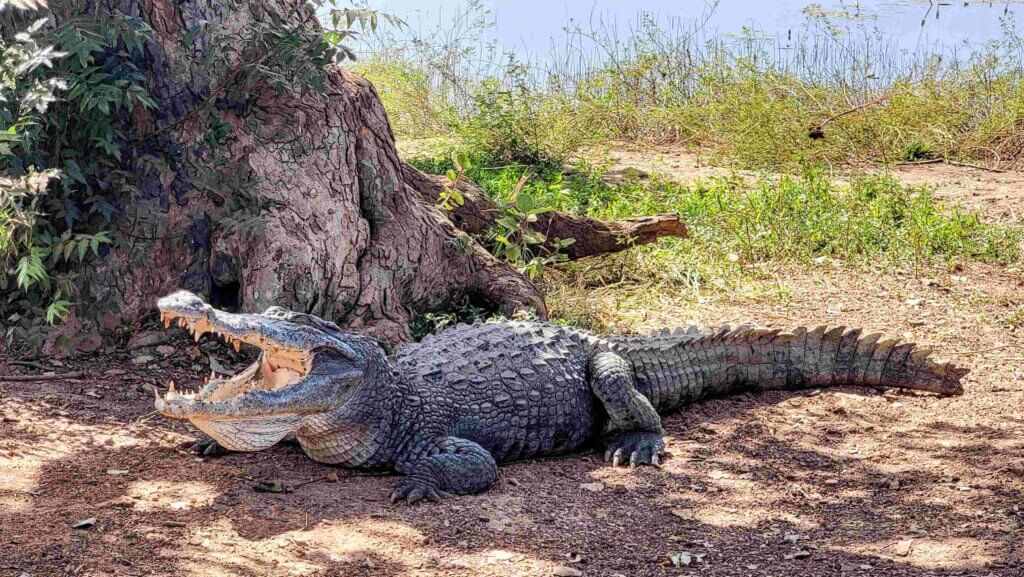
About 30 minutes west of the capital lies Bazoule, one of the Burkino Faso attractions which is known for it’s sacred crocodiles and it’s vibrant Central Market. I must say that I could have skipped the crocodile lake (however Rob really enjoyed it). My favorite part of Bazoule was the vibrant and intimate market.
The tradition of honoring crocodiles in this town stretches back to the 1500s. Legend has it that during a terrible drought, a crocodile led local women to a hidden source of fresh water, saving the village. Out of gratitude, the villagers began to revere these reptiles, and this respect has continued for centuries.
Today, for a small fee you may enter the Sacred Crocodile Lake area and spend some time with these scary looking creatures.
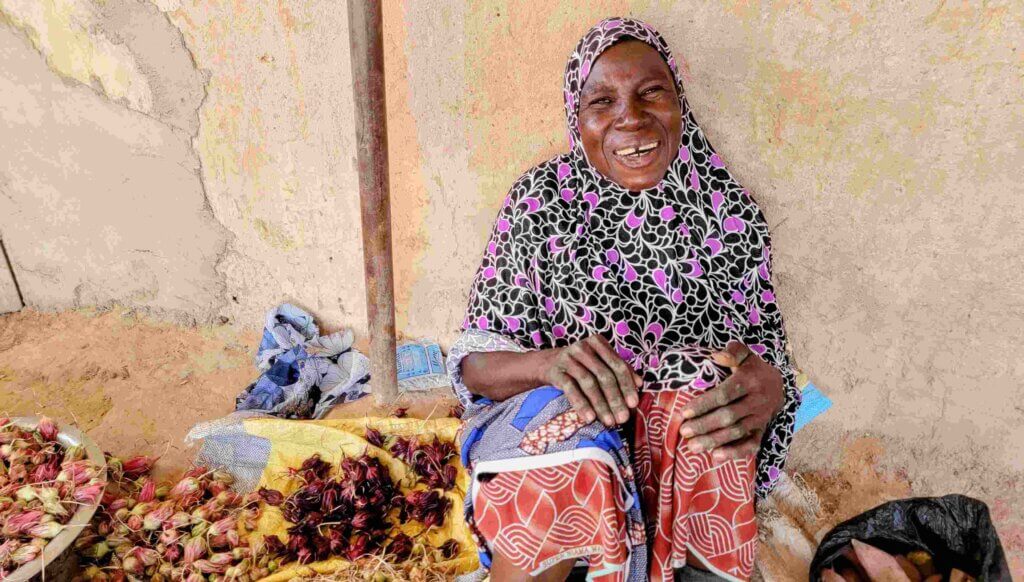
A short walk from this lake is Bazoule’s Central Market. This is a super vibrant and lively place where sights, sounds, and aromas weave a vibrant tapestry. Women in colorful dresses hawk mangoes and spices, artisans display intricate carvings, and the locals drink home made brew. When we arrived the atmosphere was very jubilant as folks shared stories and drank from communal cups of cheer.
In one of the huts within the market, a woman was selling local grains. She had the kindest face and the most welcoming attitude. Our guide translated some of her well wishes which I will carry with me for as long as I live. It is this type of genuine generosity and kind hearted spirit that made Burkina Faso a real stand out for us.
Ouagadougou
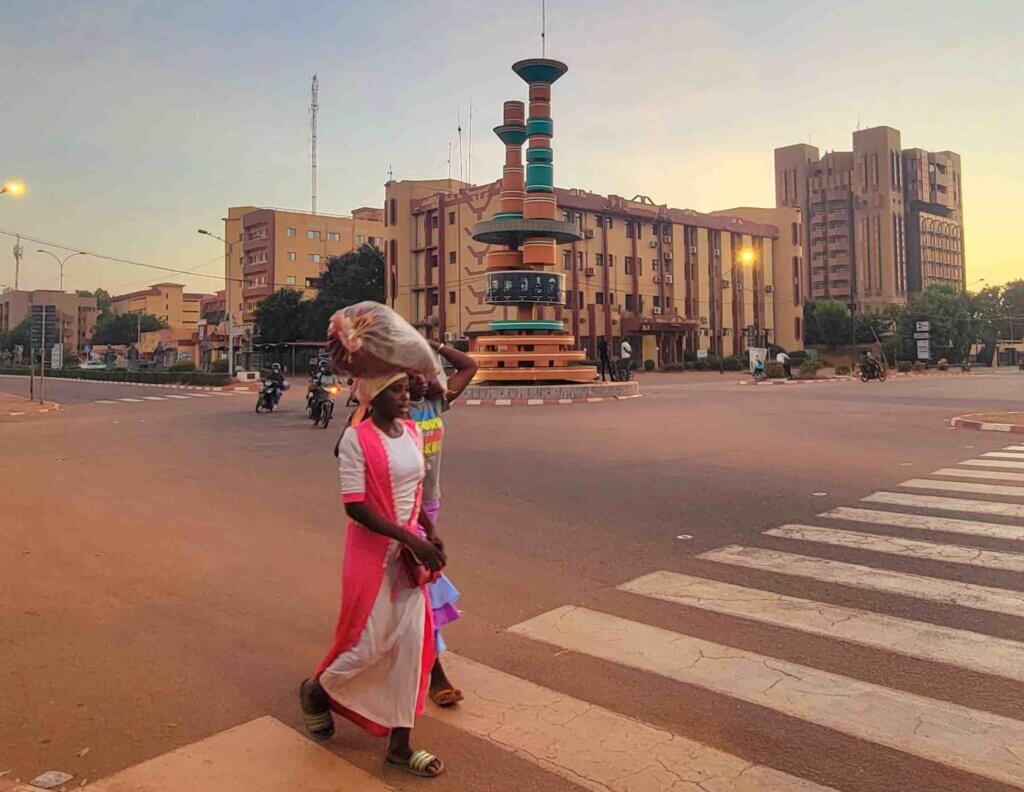
Ouagadougou, or just Ouaga (pronounced “Waga”) is the dusty capital of Burkina. Most tourist guides list the National Museum, the Museum of Music and the Cathedral to visit here. However, for us, the most interesting places were the setting of the Panafrican Film and Television Festival of Ouagadougou, the Centre National d’Art et Artisanal, an amazing art market and Theo’s Club, a local live music bar.
Panafrican Film and Television Festival of Ouagadougou
The Pan-African Film and Television Festival of Ouagadougou (FESPACO) is one of the largest African film festivals. It takes place in March every two years in Ouaga. The festival offers African film professionals the chance to establish working relationships, exchange ideas, and to promote their work with other film makers from other parts of the world.
The grounds of the film festival are filled with art installations and have a lovely cafe and restaurant.
Centre National d’Art et Artisanal
The CNAA is a workshop for artisans and an art market rolled into one. It is located right in the heart of Ouaga, near the Place des Nations-Unies on Avenue Dimdolobsom. It is open every day but Sunday and is where local artists hang out and show off their amazing skills.
This is a great place to watch local artisans turn bronze into sculptures, create gorgeous batik, make one of a kind jewelry, and weave beautiful fabrics. We really enjoyed chatting with these masters about their work and their lives.
Theo’s Club
Theo’s Club is a live music bar that serves food and drinks. It is located at the end of a dirt road in the capital. There is plenty of seating outside, but the action is inside, watching the locals dance in front of the band playing on the stage inside. This was definitely one of the big highlights of our trip and we highly recommend adding this club to a Burkina Faso itinerary.
Bobo-Dioulasso
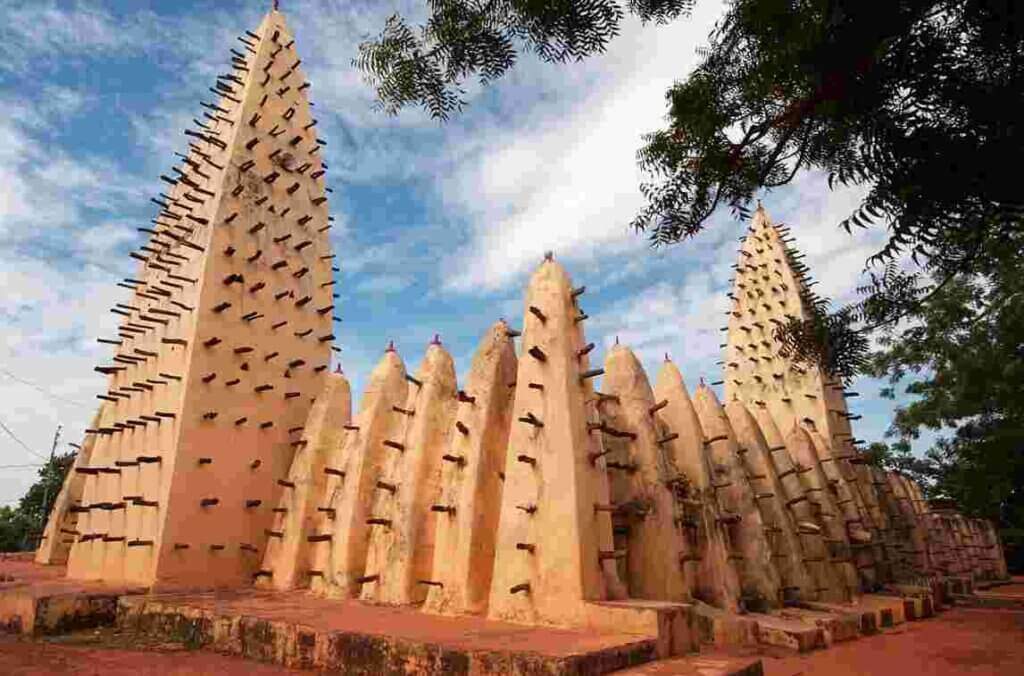
One of the true jewels of Burkina Faso is the town of Bobo- -Dioulasso which is located about 6 hours west of the capital. The most iconic place in Bobo is the Grande Mosquée which is located in the Kibidoué district, near the Place de la Révolution. This majestic structure, built in the late 19th century, stands tall with its two soaring minarets, a classic example of Sudano-Sahelian architecture.
The Grand Mosque is a beauty made entirely of natural materials – think sun-baked mud and sturdy wooden beams. You’ll notice plenty of horizontal sticks jutting out from the walls. These aren’t just decorative; they help hold the structure together and even serve as handy scaffolding during the annual renovation!
This Grande Mosquee of Bobo is second in size only to the Grande Mosquee of Djenné in Mali. It is a staple on a Burkina Faso itinerary and we agree.
Wrap Up – Burkina Faso Travel Guide
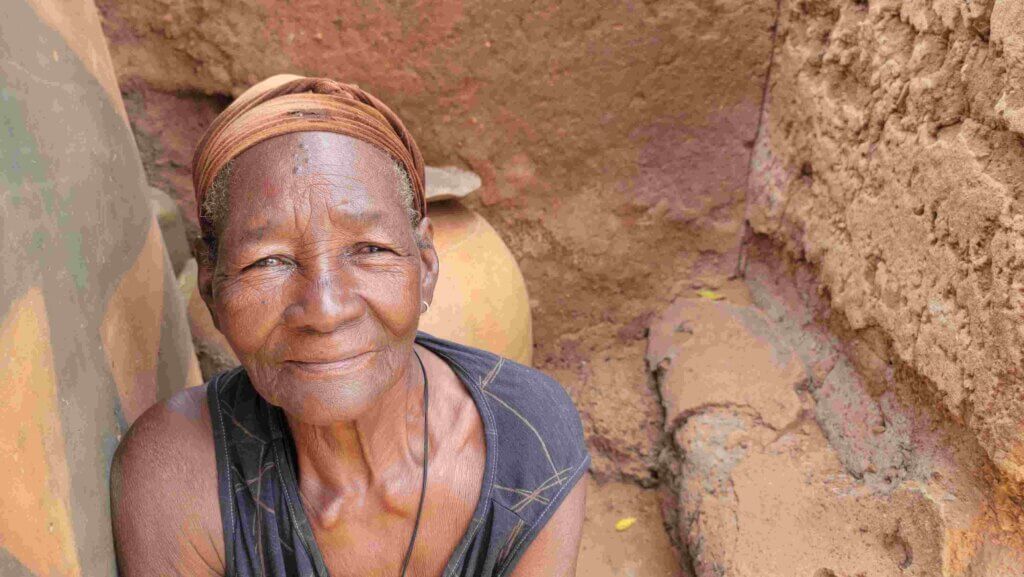
Burkina Faso travel is like stepping into another world! The feeling of warmth came over me as I traveled through this humble yet mighty country. Our favorite aspects of Burkina Faso travel were not the most popular Burkina Faso attractions per se. They were the moments in which we were able to connect with the people of this unique country.
Perhaps we were lucky, but we felt 100% safe while in Burkina. We do hope that the economic situation improves for the people of this great nation and that additional opportunities become available for everyone.
Have you been to any of the West Africa countries? Which were your favorites? We would love to hear from you in the comments.

